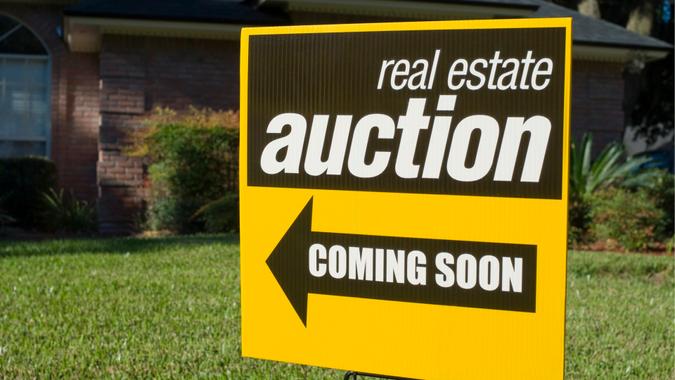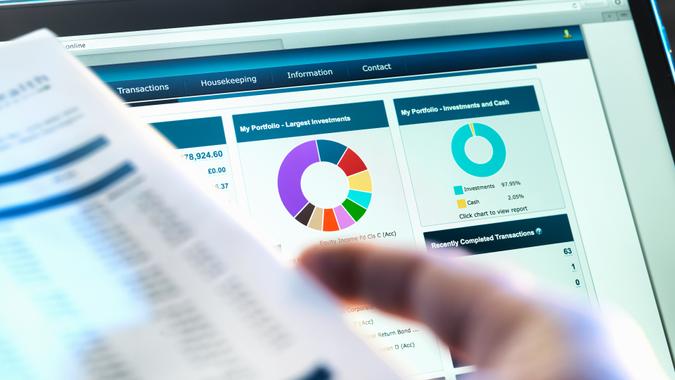For decades, retirement has been thought of as something workers do once they turn 65 or so. The Social Security Administration played a role in this, as it kept “full retirement age” at 65 for decades until it started inching higher to its current 67 for those born in 1960 or later. By those parameters, workers who retired in their 50s were generally considered early retirees.
Check Out: 10 Steps To Prepare for Retirement
For You: 5 Subtly Genius Moves All Wealthy People Make With Their Money
But, with the rise of the FIRE (financial independence, retire early) movement, some workers are now thinking of retiring in their 40s or even in their 30s. To accomplish this, it goes without saying that you’ll have to give up a lot of current pleasures in favor of saving and investing the bulk of your money.
With that in mind, here are six of the best investments and accounts to use if you want to retire early.

Regular Investment Account
For normal retirees, putting every dollar possible into a tax-advantaged retirement account makes a lot of sense. But if you’re planning on retiring early, this type of account can work against you. In most cases, you can’t withdraw from tax-advantaged retirement plans such as IRAs and 401(k)s before age 59½ without incurring a 10% penalty, and you’ll also have to pay income tax on every dollar you withdraw.
Although there are a few limited exceptions, for the most part, you shouldn’t plan on accessing your tax-advantaged retirement money before 59½. This makes a regular, taxable investment account one of the best options if you’re looking to withdraw money for an early retirement.
Be Aware: Cutting Expenses for Retirement? Here’s the No. 1 Thing To Get Rid Of First
Explore More: The Best Retirement Towns for the Middle Class in 2024

Roth IRA
For at least part of your money, a Roth IRA could be the best of both worlds when it comes to saving for an early retirement. A Roth IRA offers the same tax-deferred growth of your investments that a 401(k) or a traditional IRA would; but, unlike with those accounts, you can withdraw both your contributions and earnings tax-free when you retire.
Of course, there is one small catch. As with most traditional retirement accounts, you can’t withdraw your earnings from a Roth IRA before age 59½ without paying the 10% early withdrawal penalty. However, you can take out your contributions at any time tax- and penalty-free. This allows you to contribute to a retirement account and earn tax-free interest and capital gains but still have the flexibility to access your contributions at any time if you choose to retire early.
Consider This: Florida’s Retirees Are Fleeing: Experts Predict These 5 States Will Be Top Retirement Spots in 10 Years

Municipal Bonds
Municipal bonds won’t give you a lot of growth for your early retirement portfolio, but they’re a great way to avoid taxes. This can make them helpful in accumulating tax-free income both before and after you retire early.
Municipal bonds are a particularly good option if you’re in a high tax bracket, because that makes their effective after-tax yield much higher. Since it’s helpful to earn a lot of money if you’re looking to retire early, most successful FIRE candidates will generally benefit from earning tax-free income.

Real Estate
real estate can be a great way to earn both capital appreciation and passive income. Over the long run, real estate in desirable places tends to rise in value, while investment properties can generate ongoing rental income. Real estate also can offer a variety of tax benefits as well.
For many super savers, real estate is a way to not only allow for early retirement but also a way to sustain an early retirement lifestyle. Many FIRE proponents invest in a series of rental properties so they can live off this passive income for the rest of their days. Later in life, some of those properties likely also can be sold at a profit.

Index Funds
If you’re looking to retire in your 40s or even your 30s, you’ll need to get fairly aggressive with a good portion of your portfolio. But you also don’t want to take unnecessary speculative risks. For example, some “investors” will gamble their entire bankroll on things like meme stocks or cryptocurrency. While a very select few may make it big, the vast majority end up losing a significant amount of money.
This is why it’s important to balance risk with reward if you want to improve your chances of retiring early. Stock index funds, such as those that track the S&P 500, are a good bet if you’re looking to grow your money without taking undue risk.
Although past performance is no guarantee of future results, the S&P 500 always has recovered from even the most severe bear markets and gone on to make new all-time highs. This makes an S&P 500 index fund a good gamble if you’re looking for long-term growth.
Good To Know: I’m Retired and Regret My Frugal Retirement — Here’s Why

High-Yield Savings
A high-yield savings account isn’t going to help you reach your retirement goals directly. However, it can be an important piece of your plan if you want to retire early. You’ll need a significant emergency fund if you want to retire early, as falling into debt for unexpected expenses is a sure way to derail your retirement plan.
The best place to keep an emergency fund is in a high-yield savings account, as it’s the place where you can get the best yields. Some online savings accounts currently pay 2% or more, many multiples greater than the national average savings yield of just 0.13%.
More From GOBankingRates
- 6 Items From Costco You Shouldn't Wait To Buy on Black Friday
- 6 SUVs That Last Longer Than You Think and Are Worth the Money
- Here's How To Become a Real Estate Investor for Just $1K Using This Bezos-Backed Startup
- 7 Reasons You Should Consider a Financial Advisor -- Even If You're Not Wealthy
This article originally appeared on GOBankingRates.com: Want To Retire Early? Here Are the 6 Best Types of Investments
The views and opinions expressed herein are the views and opinions of the author and do not necessarily reflect those of Nasdaq, Inc.



